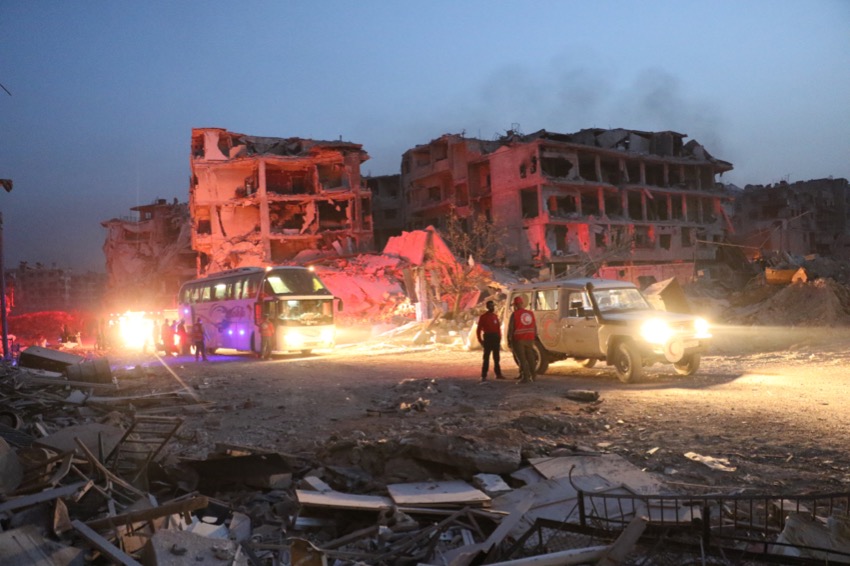Pledges are not enough - the world must not fail the people of Syria
Geneva, 29.03.2021: As we mark the tragic milestone of a decade of conflict in Syria, the Red Cross Red Crescent Movement calls upon the international community to translate words in action and ensure critical funding for one of the most brutal and far-reaching crises of our time.
Now, more than ever, Syrians need our solidarity and support. Ten years after the start of the crisis, the people of Syria are faced with a multitude of crises: continuous hostilities, economic breakdown and the COVID-19 pandemic which has only exacerbated the immense humanitarian needs in the country. At present at least 13 million people need urgent assistance and are more dependent on aid than ever before.
The needs in Syria are enormous and humanitarian services remain a lifeline. Despite the security challenges and political blockages, we must continue to find ways to repair critical infrastructure and make sure people have access to basic services such as clean water, electricity and functioning health services.
“Our infrastructure is ruined. Our people are unable to cover their most basic needs because of serious shortages of food, water, fuel, and medicines” said Khaled Hboubati, President of SARC, whose teams of staff and volunteers are working on the frontlines of the crisis, delivering more than 60 per cent of humanitarian assistance. “For a decade now, people in Syria have been living in agony. The world cannot abandon them,” added Mr Hboubati.

The RCRC Movement has been responding to the needs of people in Syria since the first days of the conflict, with volunteers and staff providing vital aid to people in areas that others cannot reach. Without them, this humanitarian catastrophe would have been much worse. Each month, we currently assist around 4.5 million people inside Syria. For this life-saving work to continue, humanitarian workers must have sustained, safe, and non-politically motivated access to all people, families and communities in need. We ask that States and all parties to the conflict respect and ensure international humanitarian law is respected in their operations.
Support is also desperately needed to help Syrians living outside of their homeland. Out of the 16.7 million people affected by the Syrian crisis, more than a third are currently hosted in neighbouring countries where National Red Cross and Red Crescent Societies are helping support millions of people, including through large-scale cash assistance in places like Turkey. In parallel, National Red Cross and Red Crescent Societies across Europe and elsewhere have been implementing a wide range of activities to help Syrians integrate into their host communities, from offering psycho-social support programmes, to running reception centres, to facilitating reunification procedures with family members left behind.
“Over the past decade, there has been tremendous generosity and solidarity in the form of aid funding for Syria and neighbouring countries,” said IFRC President Francesco Rocca. “Unfortunately, today we see that donations are declining, whereas the humanitarian crisis worsens every day. Funding is needed more than ever to ensure Syrians can cover their basic needs and maintain a life in dignity.”
Yet aid and funding alone will not resolve the crisis.
“Humanitarians are here to help but the ultimate responsibility lies with parties to the conflict,” said ICRC President Peter Maurer, recently returned from a visit to Syria. “Collective and convergent leadership across the political divide is urgently needed. Otherwise, there will be Brussels conferences 6, 7 and more. Ongoing financial support and a negotiated political solution will create the conditions for a brighter future for the Syrian people.”

For media inquiries, please contact Eva Oyón on: eva.oyon@redcross.eu or +32 2 235 09 22

